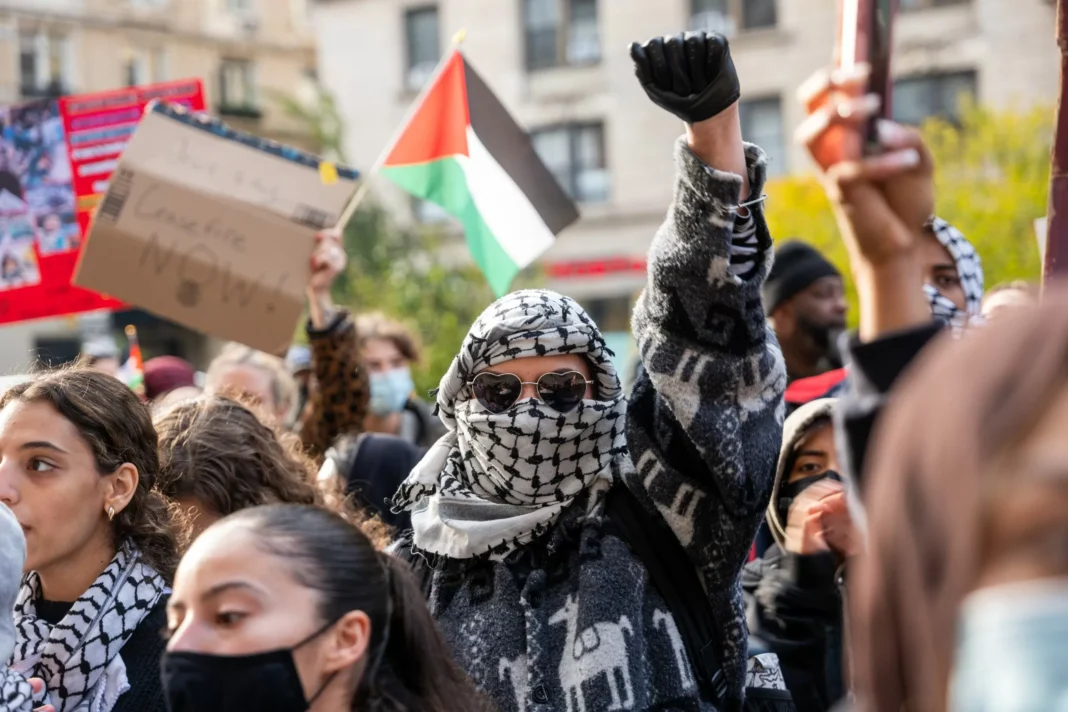From dismissals of faculty to ‘skunk’ bomb attacks on student activists, attempts by university administrations and outside agitators to silence pro-Palestine organizing presents a major threat to academic freedom.
Academic freedom is a fundamental principle that lies at the heart of higher education. It is the cornerstone of intellectual inquiry and critical thinking, allowing students and faculty to engage in open and honest discussions about important issues, even if they are controversial. However, recent events have shown that this cherished principle is under attack, particularly when it comes to discussions about the ongoing Israeli-Palestinian conflict.
In universities across the world, there has been a growing movement to support the Palestinian cause and raise awareness about the human rights violations and injustices faced by the Palestinian people. This has led to the formation of student groups and the hosting of events and discussions on campus. However, these efforts have been met with fierce opposition from university administrations and outside agitators who seek to silence pro-Palestine organizing.
One of the most alarming tactics used to suppress pro-Palestine voices is the dismissal of faculty who express support for the Palestinian cause. In the United States, Professor Steven Salaita was fired from the University of Illinois at Urbana-Champaign for his tweets criticizing Israel’s actions in Gaza. This blatant violation of academic freedom sparked outrage and led to a widespread boycott of the university. Similarly, in the United Kingdom, Professor David Miller faced calls for his dismissal from the University of Bristol for his research on Zionism and Israel’s influence in British politics. These dismissals not only harm the academic careers of these individuals but also send a chilling message to other faculty members who may fear speaking out on controversial issues.
In addition to targeting faculty, university administrations have also taken measures to suppress student activism in support of Palestine. This includes the use of disciplinary actions, such as suspensions and expulsions, against students who participate in protests or speak out against Israel’s policies. In some cases, universities have even gone as far as to ban pro-Palestine student groups from campus, denying students the right to freely express their opinions and engage in peaceful activism.
Outside agitators, such as pro-Israel lobby groups, have also played a significant role in attempting to silence pro-Palestine organizing on campus. These groups often pressure universities to cancel events or withdraw invitations to speakers who are critical of Israel. They also use smear campaigns and false accusations of anti-Semitism to discredit and intimidate pro-Palestine activists and organizations. This not only undermines academic freedom but also stifles important discussions and debates that are necessary for a well-rounded education.
Perhaps one of the most disturbing tactics used to suppress pro-Palestine organizing is the use of ‘skunk’ bombs on student activists. These foul-smelling, chemical weapons are often used by Israeli forces against Palestinian protesters, and now they are being used on students who dare to speak out against Israel’s actions. This not only poses a health risk to those targeted but also creates a hostile and intimidating environment for students on campus.
The attempts to silence pro-Palestine organizing on university campuses are not only a violation of academic freedom but also a threat to the principles of democracy and free speech. Universities should be a space for open and respectful dialogue, where diverse perspectives can be shared and debated. By suppressing one side of the discussion, universities are failing in their duty to provide a well-rounded education and prepare students to be critical thinkers and engaged citizens.
It is crucial for university administrations to uphold the principles of academic freedom and protect the rights of students and faculty to express their opinions and engage in peaceful activism. This includes creating a safe and inclusive environment for all students, regardless of their political beliefs. It also means standing up against outside pressure and ensuring that decisions are made based on academic principles, not political agendas.
As students and faculty, we must also continue to speak out and stand in solidarity with those who are facing attacks for their support of the Palestinian cause. We must demand that our universities uphold the values of academic freedom and reject any attempts to suppress free speech and peaceful activism.
In conclusion, the attempts by university administrations and outside agitators to silence pro-Palestine organizing pose a major threat to academic freedom. It is our responsibility to defend this fundamental principle and ensure that our universities remain spaces for open and respectful dialogue, where all voices can be heard. Let us continue to stand together in the face of these attacks and


